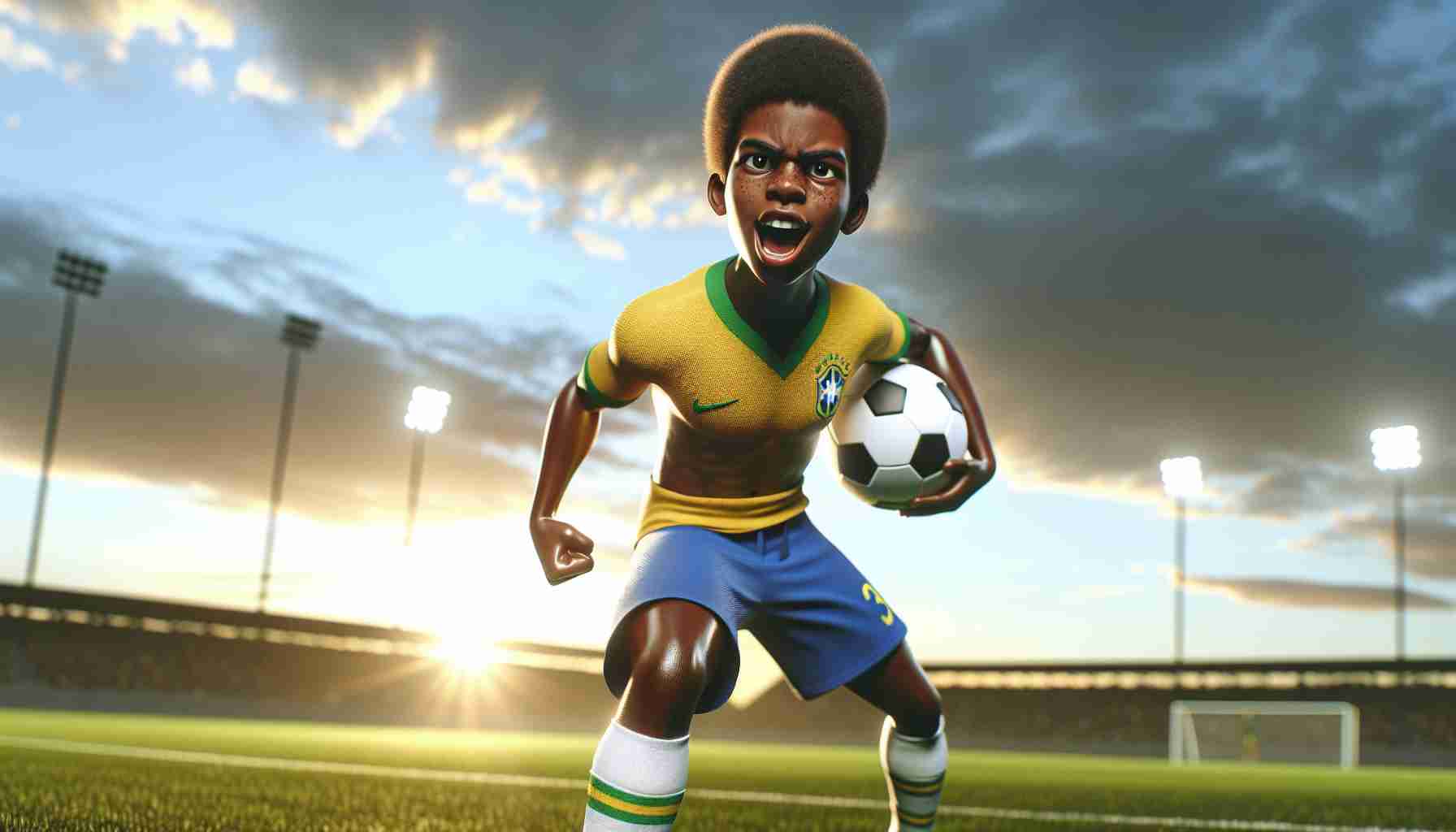
Breaking Barriers: Vinicius Junior Stands Against Status Quo
Vinicius Junior shook the football world with his bold statements following an unexpected defeat at the Ballon d’Or ceremony. The Brazilian player, once thought to be the likely winner, found himself at the center of controversy after the award slipped from his grasp. Rather than dwelling on the loss, Vinicius chose to use his platform to address a much larger issue.
Instead of discussing racism, Vinicius highlighted the need for football to embrace change and challenge the existing system. His management clarified that his comments were a call to action for the sport to acknowledge and support players who push boundaries.
Teammates rallied behind Vinicius, showing solidarity in the face of adversity. Messages of support flooded social media, with fellow players acknowledging his talent and impact on the game. The scene was a stark contrast to the traditional celebrations at the awards ceremony, indicating a shift in the football landscape.
While the night may not have gone as expected for Vinicius, his outspoken stance and refusal to conform to norms have set a new precedent in the sport. As the football world grapples with issues of representation and inclusivity, players like Vinicius Junior are paving the way for a more diverse and equitable future.
Vinicius Junior Takes a Stand: Uncovering New Realities in Football
As the aftermath of the Ballon d’Or ceremony continues to reverberate through the football world, it’s clear that Vinicius Junior’s actions have sparked a much-needed conversation. However, beneath the surface of the initial reactions lies a host of questions and challenges that are essential to address.
Key Questions:
1. What specific changes does Vinicius Junior advocate for within football?
– Vinicius Junior’s call for change extends beyond the individual level, focusing on systemic reforms that address issues of bias, inequality, and outdated structures within the sport.
2. How can football institutions effectively support players who challenge the status quo?
– This question delves into the role of governing bodies, clubs, and sponsors in fostering an environment that encourages diversity of thought and action among players.
Key Challenges:
1. Resistance from Traditionalists:
– One of the main challenges facing players like Vinicius Junior is the resistance they encounter from those who are entrenched in traditional ways of thinking within football.
2. Navigating Media Scrutiny:
– Speaking out against the status quo can subject players to intense media scrutiny, which may affect their career prospects and public image.
Advantages:
Vinicius Junior’s bold stance brings several advantages to the forefront of the football landscape:
1. Inspiration for Young Players:
– By challenging norms and speaking out, Vinicius serves as an inspiration for aspiring footballers who may feel marginalized or limited by existing structures.
2. Catalyst for Change:
– His actions have the potential to catalyze meaningful change within the sport, leading to greater diversity, inclusivity, and fairness.
Disadvantages:
Despite the positive impact of Vinicius Junior’s actions, certain disadvantages must also be acknowledged:
1. Potential Backlash:
– Taking a strong stance against the status quo can result in backlash from certain quarters, potentially jeopardizing a player’s career trajectory.
2. Isolation:
– Players who challenge the system may find themselves isolated or marginalized within the football community, making it difficult to effect lasting change.
In conclusion, Vinicius Junior’s stand against the status quo represents a turning point in football’s ongoing evolution. By highlighting the need for systemic change and pushing boundaries, he has opened the door to a more progressive and inclusive future for the sport.
For further insights into the changing dynamics of football and the rise of player activism, visit FIFA.

















